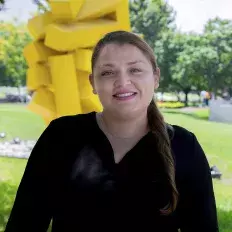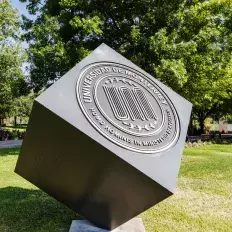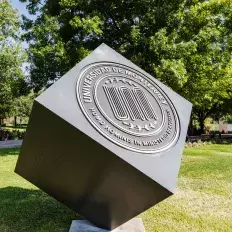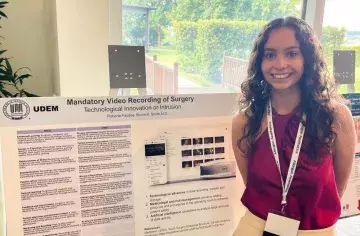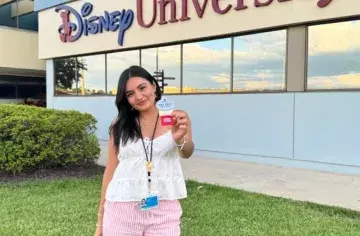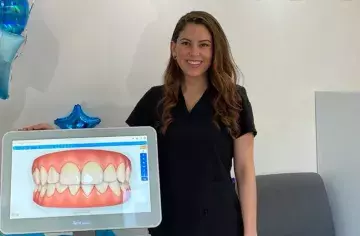Description
The specialist in Urology, through a medical practice grounded in problem-solving educational methodologies, is characterized by the ability to provide high-quality professional care to the community in any national and international setting of interest. They will be highly competent within their specific field of action.
The duration of the Specialty in Urology is 4 years.
Required Academic Background: 1 year of General Surgery Specialty.
Primary Clinical Site
-
Mexican Social Security Institute (IMSS)
-
High Specialization Medical Unit, Specialties Hospital No. 25
-
General Zone Hospital No. 33
-
-
Institute of Security and Social Services for State Workers (ISSSTE)
-
Regional Hospital of Monterrey
-
Official Recognition of Studies (RVOE): Granted by the Secretary of Public Education under agreement 20240082, valid until January 19, 2030.
Objective
To prepare urology specialists with an academic foundation encompassing basic and clinical sciences, capable of diagnosing and treating patients with diseases affecting the genitourinary tract. They will adeptly utilize cutting-edge technology to develop a professional practice adhering to the highest standards of patient care and safety, while collaborating with multidisciplinary health teams.
Additionally, the urology specialist will operate within a framework of ethics, humanism, and service vocation, respecting the environment, and employing scientific research methods as a regular instrument in daily practice, committed to continuous professional development.
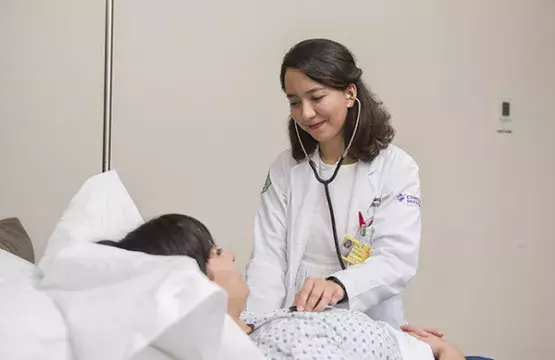
Admission profile
Knowledge:
-
Profound understanding of general medical sciences.
-
Basic knowledge of scientific methodology and epidemiological methods.
-
Proficiency in spoken and written Spanish.
-
Ability to comprehend and translate from English.
Skills:
-
Perform diagnostic and therapeutic procedures in Preventive Medicine and Epidemiology.
-
Teamwork proficiency.
-
Systematic retrieval of medical information.
-
Basic internet navigation skills.
-
Proficiency in Microsoft Office.
-
Use of statistical packages.
Attitudes:
-
Warmth and availability in patient and family care.
-
Discipline, order, and punctuality in practice.
-
Values of honesty and respect towards others.
-
Habit of study and participation in continuous education activities.
-
Promotion of a healthy lifestyle to prevent diseases and improve quality of life.
-
Entrepreneurial spirit, academic advancement attitude, and self-learning.
-
Demonstrate responsibility and leadership within the health team.
-
Perseverance in professional development.
Graduate profile
Upon completion of your studies in Urology, you will have developed the following knowledge:
-
Deep knowledge in embryology, anatomy, physiology, and pathophysiological mechanisms, including the natural history of prevalent medical-surgical diseases within the specialty.
-
Methods for primary, secondary, and tertiary prevention.
-
Diagnostic-therapeutic procedures from clinical history to invasive and non-invasive diagnostic-therapeutic studies, their indications, utilities, risks, and complications.
-
Actions for prevention, self-care, diagnosis, medical-surgical treatment, and rehabilitation, using current technological resources for comprehensive care of medical-surgical pathologies and their complications.
-
Application of current national and international norms related to discipline and quality medical care, emphasizing patient safety.
-
Theoretical aspects of the teaching-learning process applied to patient, accompanying family member, and multidisciplinary health team training related to their discipline.
-
Promotion of healthy lifestyles, identifying risk factors considering intercultural elements.
-
Application of information and communication technologies to daily practice.

Upon completion of your studies in Urology, you will have developed the following skills:
-
Skillful and proficient application of the most updated urological procedures and technical resources for comprehensive patient care, diagnosis, and treatment.
-
Timely and orderly integration of clinical findings and paraclinical studies to establish appropriate diagnoses and select suitable therapeutic options.
-
Treatment of the sick individual as a biopsychosocial entity in their competency scenarios.
-
Effective communication resulting in an exchange of information and proper relationships with patients, their families, and the healthcare team.
-
Planning of study and treatment programs based on scientific criteria, with quality service principles contributing to sustainable human development with equity and justice.
-
Coordination of multidisciplinary care with other specialists to offer the best comprehensive therapeutic option.
-
Use of the scientific method for clinical research and design of research projects addressing population health needs.
-
Development of timely responses to emerging diseases, establishing prevention and control strategies.
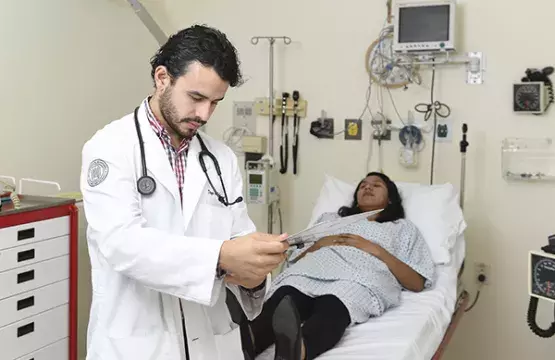
Upon completion of your studies in Urology, you will have developed the following attitudes:
-
Application of ethical and deontological principles of medical practice.
-
Assume responsibility and service attitude towards health-disease process issues.
-
Establish positive and respectful relationships with patients, families, and the professional environment.
-
Prioritize medical-administrative decision-making for prevention, diagnosis, treatment, and rehabilitation based on risk-benefit and cost-benefit balances, contributing to improved patient quality of life.
-
Profound respect for the environment.
-
Awareness of social responsibility and importance within the healthcare system.
-
Self-criticism to acknowledge limitations, seek support when necessary, and refer patients as appropriate.
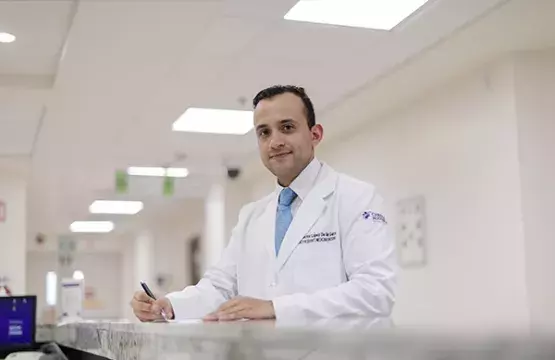
Live an experience abroad
Have an academic experience abroad for a summer, a semester or a year.
See moreCurriculum
Consult the courses that you will take in the Subspecialty in Urology.
| Code | Course | Credits |
|---|---|---|
|
SSUR1101 |
Clinical Training in Urology I |
70 |
|
SSUR1102 |
Urology Care I |
24 |
|
SSUR1103 |
Clinical Management |
4 |
| SSUR1104 |
Research I |
12 |
| Code | Course | Credits |
|---|---|---|
|
SSUR2101 |
Clinical Training in Urology II |
70 |
|
SSUR2102 |
Urology Care II |
24 |
|
SSUR2103 |
Health Education |
4 |
| SSUR2104 |
Research II |
12 |
| Code | Course | Credits |
|---|---|---|
|
SSUR3101 |
Clinical Training in Urology III |
70 |
|
SSUR3102 |
Urology Care III |
24 |
|
SSUR3103 |
Bioethics and Medical Professionalism |
4 |
| SSUR3104 |
Research III |
12 |
| Code | Course | Credits |
|---|---|---|
|
SSUR4101 |
Clinical Training in Urology IV |
70 |
|
SSUR4102 |
Urology Care IV |
24 |
|
SSUR4103 |
Research IV |
12 |
Professors of the Vice-Presidency of Health Sciences
Stories
Learn about the success stories of our graduates.


